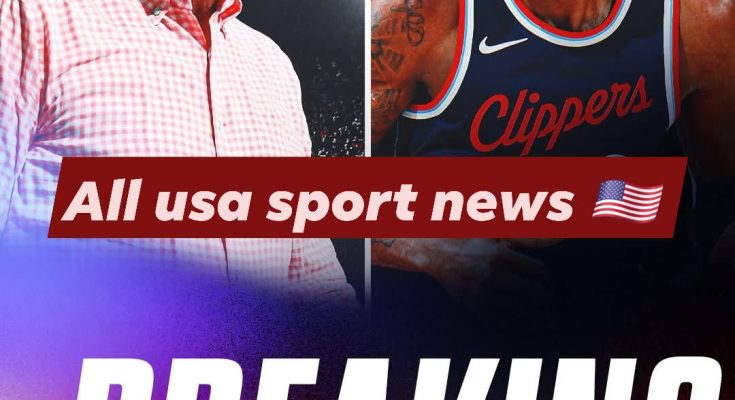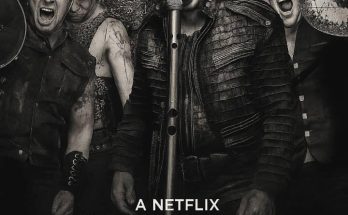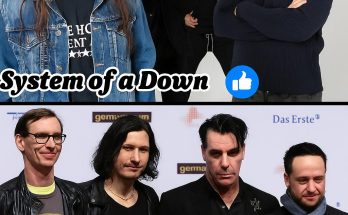On September 6, 2025, the NBA escalated the scrutiny surrounding a deeply troubling new scandal by formally hiring the prestigious law firm Wachtell, Lipton, Rosen & Katz to conduct an investigation into a highly sensitive matter involving Kawhi Leonard and the Los Angeles Clippers. According to reporting by The Athletic, the probe centers on allegations that the Clippers, potentially with Kawhi Leonard’s participation, may have deliberately circumvented the NBA’s salary cap by orchestrating a $28 million “no-show” endorsement deal with a now-bankrupt environmental start-up named Aspiration—an arrangement that would, if proven, represent a serious violation of league rules.
The choice of law firm echoes historical precedents; Wachtell, Lipton, Rosen & Katz previously led investigations into Donald Sterling and Robert Sarver—both of which ultimately resulted in high-profile terminations. The league’s selection of this firm signals the gravity with which the NBA views these new allegations.
Initial revelations came via the Pablo Torre Finds Out podcast, produced by The Athletic. In an episode released earlier in the week, Torre reported that Aspiration—an environmentally focused start-up partially funded by Clippers owner Steve Ballmer—entered into a four-year, $28 million endorsement deal with an entity called KL2 Aspire LLC, managed by Kawhi Leonard. Sources who previously worked in Aspiration’s finance department alleged that the purpose of this deal, which required no actual promotional work from Leonard, was to circumvent the salary cap by funneling compensation outside of his official NBA salary.
Court and bankruptcy filings offered hard evidence: Aspiration’s March 2025 bankruptcy documents list KL2 Aspire LLC as a creditor owed approximately $7 million. Yet there is no public record—no advertisements, social media posts, or marketing events—where Kawhi Leonard endorsed or promoted the company, unlike other celebrities such as Doc Rivers or Robert Downey Jr. who did. Aspiration’s documents also reportedly included a clause stating that the payments to Leonard would cease if he departed from the Clippers—further suggesting conditional payments tied to his association with the team rather than legitimate endorsement duties
Aspiration’s co-founder, Joseph (Joe) Sanberg, has since pleaded guilty to wire fraud for defrauding investors of more than $248 million, shining an even darker light on the scheme’s legitimacy.
The Clippers and Steve Ballmer have issued vehement denials. The team’s statements emphasized that Ballmer’s investment in Aspiration was a separate business venture, entered into in good faith because the company appeared committed to environmental protection—not as a vehicle to bypass salary cap rules. They further asserted that the Clippers had no involvement or oversight in Leonard’s independent endorsement deal with Aspiration and that any suggestion otherwise is “provably false.” The organization noted it ended its relationship with Aspiration during the 2022–23 season, after Aspiration defaulted on its obligations, and insisted it will cooperate fully with law enforcement.
Ballmer, in interviews, echoed these defenses—stating that he had no control over Aspiration’s operations, held less than 3% equity, and maintained no board seat. “I had no ability to predict why they might have done anything they did,” he said, describing himself as another victim of Aspiration’s fraud.
Among notable reactions, Mark Cuban publicly defended Ballmer, arguing that the real scandal was Aspiration defrauding both Leonard and Ballmer—rather than a co‑conspiracy to evade the cap. Cuban attacked the framing of the narrative, calling it an oversimplification and a misrepresentation of what truly transpired Meanwhile, sports commentator Stephen A. Smith has criticized Leonard personally, stating the situation reflects poorly on him and placing Leonard at the center of one of the most serious scandals the NBA has faced in recent memory.
The NBA investigation, now formalized through the law firm, will likely probe transactional documents, contractual language, communications between all parties, and whether those payments were indeed contingent on Leonard remaining with the Clippers or avoiding public promotion. Historically, salary cap circumvention has been met with severe penalties: for instance, the Minnesota Timberwolves lost several first-round picks and had contracts voided in a notorious Joe Smith case from 2000. Under the current collective bargaining agreement, penalties could include fines up to $4.5 million (some media outlets cite even higher fines up to $7.5 million), forfeiture of draft picks, and voiding of relevant contracts.
While the Timberwolves’ scandal involved secret side agreements, this case includes arguably stronger circumstantial indicators: the structured payments via an entity tied to Leonard, lacking any promotional or performance component, the bankruptcy and creditor transparency, and the odd conditional clause tied to team affiliation.
As this scandal developed, the San Antonio Zoo even went viral by releasing a tongue‑in‑cheek video mocking the controversy—jokingly launching a “tree‑planting investigation” on zoo grounds and cheekily declaring “all trees were real,” while shouting “GO SPURS GO!” It served as a lighthearted counterpoint to a situation quickly spiraling into legal and reputational peril.
Reflecting on the broader implications, this investigation arrives at a time when the NBA enforces compliance with increasing vigilance—particularly salary cap rules, which are fundamental to league parity and fairness. The commissioner’s office and legal teams have made it clear they regard circumvention as a “cardinal sin,” deserving of full-scale investigation and harsh consequences. Reddit discussions on past cap violations frequently highlight how seriously the league has responded, including long-term loss of draft picks, contract voiding, or large fines.
As of now—September 6, 2025—the investigation is in early stages. The NBA’s hiring of Wachtell, Lipton, Rosen & Katz demonstrates the league is treating these allegations with maximum seriousness. It’s unclear whether Leonard or his representatives will offer their own statements or legal responses or if additional evidence may emerge from Aspiration’s bankruptcy proceedings or other internal documents. The league’s final ruling could reshape narratives around Leonard’s legacy, Ballmer’s reputation, and the Clippers’ front office integrity. There’s also the real possibility that, even absent conclusive proof, public perception may sway based on the optics, with the NBA aiming to preserve the integrity of its salary cap system.
As developments unfold, attention will focus on whether the Clippers or Leonard face sanctions, whether contracts might be voided, and whether NBA draft picks or monetary penalties come into play. The implications stretch beyond this one case—this probe could serve as a potent warning to other teams contemplating similar workaround schemes. The league must demonstrate that evasion of cap rules, even via creative constructs or third-party deals, will not be tolerated.
In the coming weeks and months, viewers across the NBA world will watch closely. Will key documents surface that either confirm or exonerate the parties involved? Will this prompt rule changes or tighter scrutiny of third-party deals going forward? And critically, what precedents will this set for enforcing compliance in an era of increasingly creative—and sometimes suspicious—financial engineering?
This controversy now represents more than just a potential rule breach, it’s a major test of the NBA’s willingness to police its financial integrity, hold powerful figures accountable, and preserve fairness across its competitive landscape.


